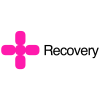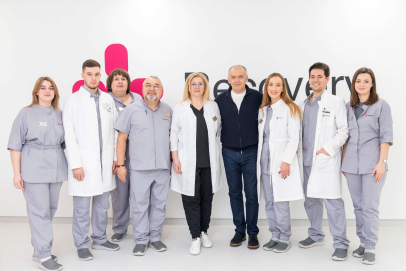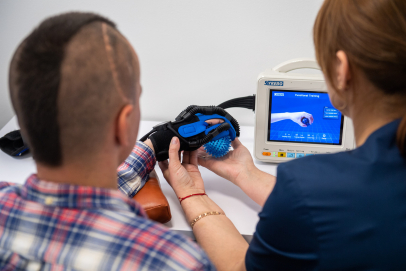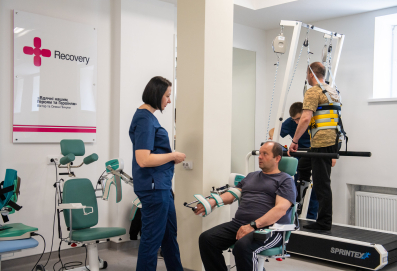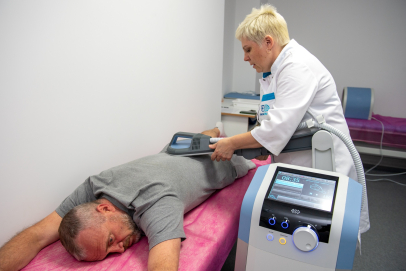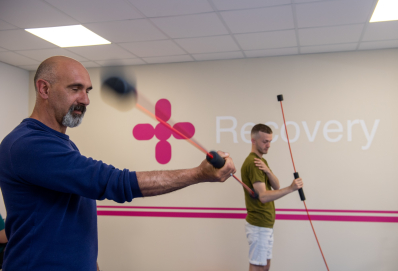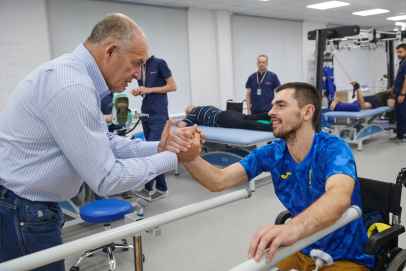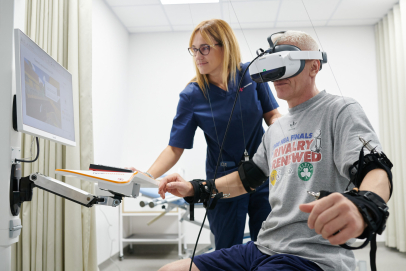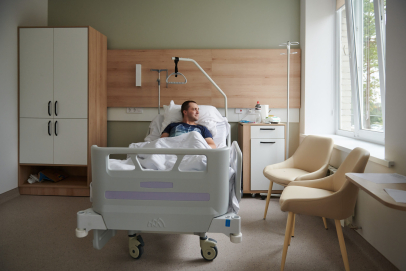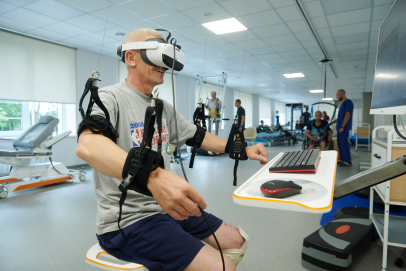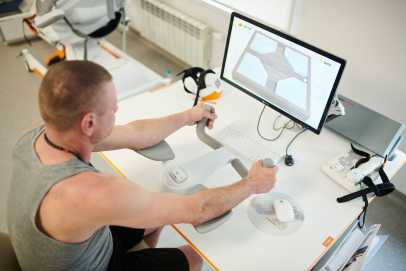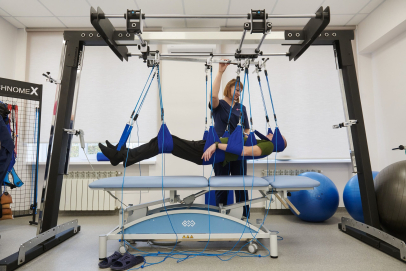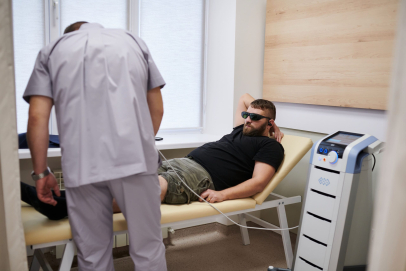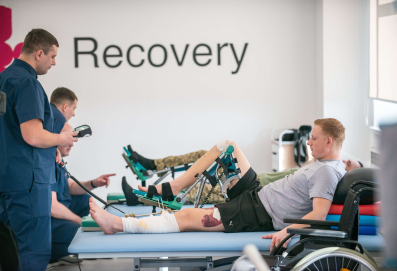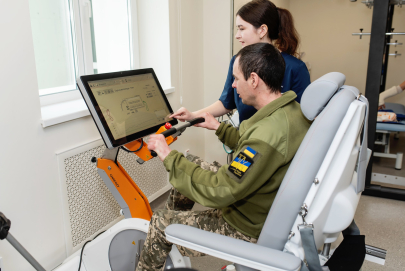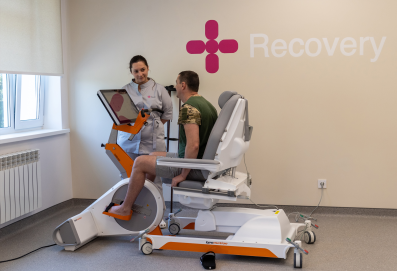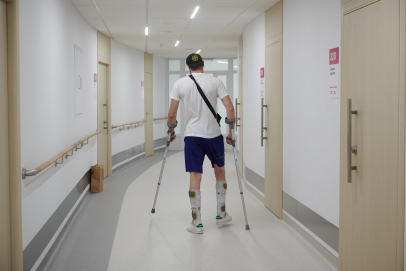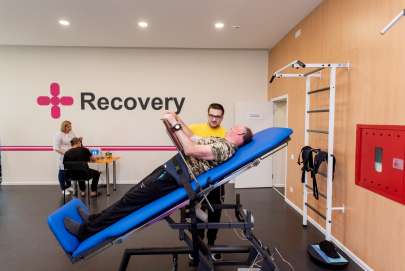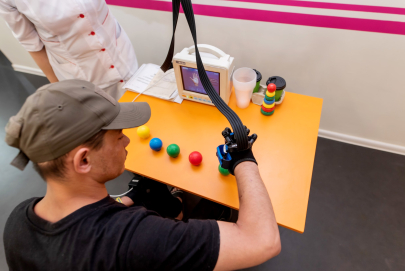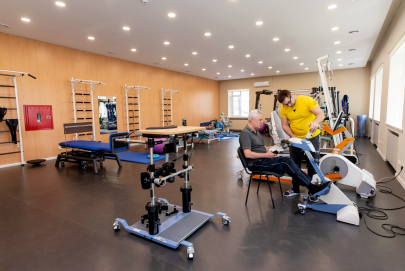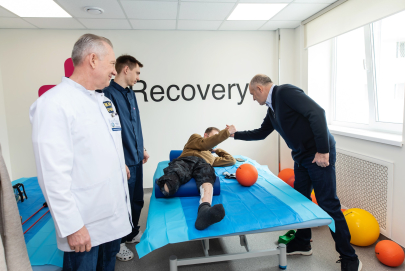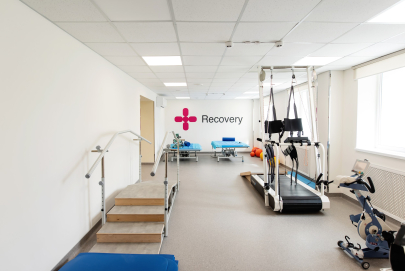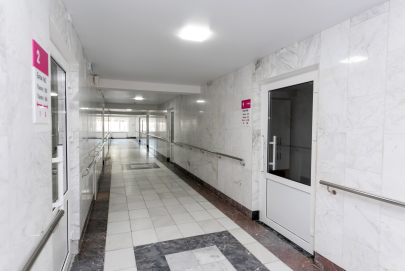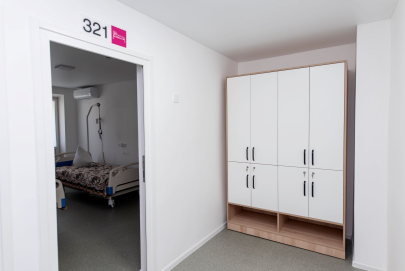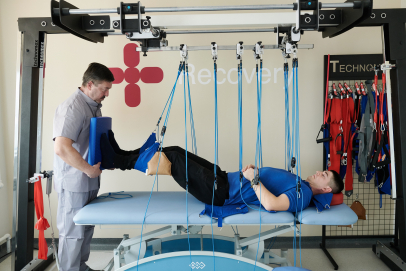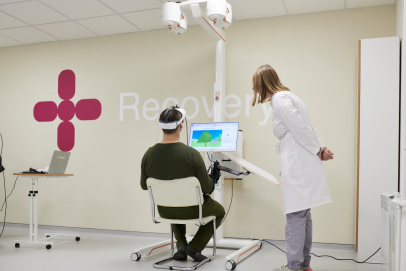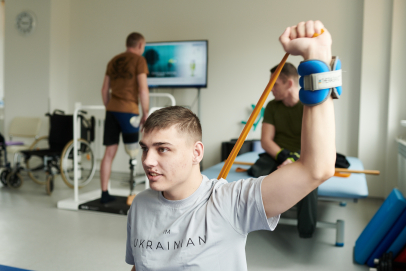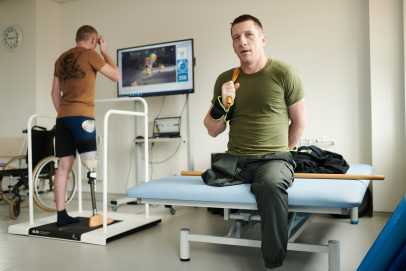Преса про нас
By Olga Kryzhanovskaya (Live-Davos-Kiev)
‘Are you from Ukraine? Your big boss with quite a few security guards was here a moment ago', - an elderly resident of the Alpine village Davos could hardly keep in his admiration. For several days he was finding himself in the focus of geopolitical fermentation called the World Economic Forum. Swiss hill folks were not though the only lucky fellows who met a "high ranker", the Prime-Minister Victor Yanukovich. So were nearly 400 participants of the Ukrainian lunch in Davos which was hosted for the third time by businessman Victor Pinchuk.
This visit to Davos enabled Yanukovich, who is still taken ambiguously in Europe because of the presidential election engineering in 2004, to walk off unprejudiced stereotypes. Still, the Prime Minister was not honored with such hearty welcome that had been extended to Victor Yuschenko two years ago. He was not presented with a chance to take the floor at the Forum session which gathered above 200 heads of states and business leaders. This year, the Davos focused on quite different countries - Iran, Russia and Middle-Eastern states. The tidal wave toward Ukraine aroused by the Orange revolution gave place to the restrained bewilderment. ‘There was much enthusiasm two years ago. Today, though the interest towards Ukraine is still kept, the people are disposed to be wary', - Felix Howald, Associate Director for Europe of the World Economic Forum comments.
Communications Without Borders
The Davos Forum is famed rather for its informal atmosphere of an exclusive Alpine skiing resort, than for its official events. Between the slopes of 3 000-meter highland altitude, the wealthiest people in the world are ruling sway the destinies of megabuck deals. In the foyers of the Davos hotels, one could make a deal better than at business meetings in offices and headquarters. In the snow-clad streets you can easily see the strolling billionaires - George Soros or Bill Gates. They feel secure in Davos. This year, Swiss authorities have allocated around $5 million to guard a 10 000-populated inhabitation.
‘You're a superstar today', - Victor Pinchuk has greeted his counterpart Renat Akhmetov, who broke loose from the journalists' strong grip. It was Akhmetov's first appearance at the world business elite meeting. In addition to his image advantages, participation in the Davos Forum would bring the billionaire a purely practical profit too. Akhmetov's meeting with the general manager of New York Stock Exchange John Tane was not useless either. They discussed the Capital Management System Group's entry to the exchange to hold an IPO.
"Currently, all the Ukrainian companies are conjecturing how much Victor Pinchuk's business costs. How much does the business of Akhmetov cost? My business was estimated in the sum of $11.8 bn (by the last year estimate of The Correspondent), I regard it a low price, someone takes it as a high one', - the Donetsk billionaire was reasoning. ‘To stop conjecturing, we all need to enter the exchange and it will assess everything at market value. In Davos, Ukrainian Prime Minister crossed his path with U.S. billionaire Soros who, according to some Russian media, funded the mass demonstrations in 2004 that prevented Yanukovich from presidency. The Correspondent quotes Soros as saying that it was not their first meeting though. ‘We've had a good dialogue', he assured.
During that brief discussion, the Premier promised Soros to tackle seriously a crucial issue of Ukraine's security of energy supply. The latter is known to be an explicit critic of non-transparent gas agreements of 2005 and RosUkrEnergo intermediary participation in them. The statement made by the cabinet of ministers four days later on their intention to re-enter the 2002-2004 agreements with Gazprom proves that the Prime-Minister's promise was not mere words.
Generally, the U.S. philanthropist weighed optimistically the developments in Ukraine after the Orange revolution. Soros specified the free press and "true democratic process" as Ukraine's major accomplishments, and corruption - as its biggest challenge. ‘The authorities' transparency is a high priority. And it will be one of the priorities of my Foundation activity in Ukraine', - the billionaire promised.
Without a lunch break
This time it was not a traditional warm hearted privy party in a festival hall of a four-star Morosani Schweizerhof hotel, though there were every reasons for it - Ukrainian vodka, sandwiches with lard, stuffed cabbages and even borsch. But because of a great number of guests and journalists, showing keen interest to this event, one did not manage to combine discussion with lunch. While the discussions were progressing, the participants of the conference on Brazil's investment attractiveness that just close in the next hall were strengthening focus on the Ukrainian kitchen.
Ukrainian lunch ‘in full' turned out to be a surprise even for its organizers. Topic for the discussion "Where is Ukraine heading?" was not fresh, to put it mildly, and it did not intend to make any revolutionary discoveries. Moreover, last year the country distinguished itself by nothing except political crises and a total mess in the powers hierarchy. Many Europeans, for instance, President of Latvia Vaira Vike-Freiberga, drew non-comforting conclusions without a superfluous diplomacy: Ukraine has lost precious time; its leaders have not justified the nation's hopes and have not chosen a course for country's further development yet.
‘Anyway, an investor is still interested in the transition countries, not in those stable with a 2 %-margin', - Oleg Rybachuk, ex-Head of President Administration, noted in an apologetic tone. Besides, a 7% growth of GDP affords all grounds for optimistic prognostication for Ukrainian economy - that was emphasized by Yanukovich and by first deputy Head of President Administration Arseniy Yatsenyuk. Whichever the way, the business elite hurried up to get a closer acquaintance with those who would be considered the country's rulers for the next five years. For his turn, Yanukovich did his best to make a favorable impression, though unlike Pinchuk and Akhmetov, he spoke with foreigners through an interpreter. ‘My government is a reliable partner for the world partnership', - he was convincing the investors but the latter did not immediately gave credit to Yanukovich reliability.
The topic of the power-sharing conflict was the most discussed one. Keeping in mind that money likes calm and peace, the European policy-makers admonished the Premier-Minister in different ways to reconcile with President and somewhat quicker to find a way out of political confrontation; and they made reference to their own experience at that. The times when they were young rushed upon ex-President of Poland Aleksandr Kwasniewski and former finance minister of France Dominique Strauss-Kahn. ‘We invented the constitutional dysfunctions', - Frenchman noted not without irony. - ‘Now we will see how you will manage to overcome them. Maybe we'll learn something from you'.
The Premier Minister promised the participants to hear the press critics, to strengthen gains of the Orange revolution and by no means to encroach on the presidential powers. In terms of foreign policy, Yuschenko assured the Correspondent, there are no differences at all with Yuschenko (apparently he forgot his explicit reluctance to forward Ukraine to NATO). ‘We have a common vision which will be shortly supported with a common strategy. There are some discrepancies in tactics though', - the Premier said. Victor Pinchuk also expressed his firmness that President and prime-Minister would be able to come eventually to an understanding. ‘I'm sure there are no ideological discords between the President and the Premier Minister. To generate common viewpoint, one should work', - the businessman noted to the Correspondent.
In Davos, Yanukovich really sounded sometimes like Ukraine's western-minded president Yuschenko. The Premier Minister even succeeded in avoiding his ordinary courtesies towards Moscow. The official Kremlin completely ignored a Ukrainian lunch: it seemed that the company of Vaira Vike-Freiberga and Soros slackened the Russian officials' appetite. Neither minister of economic affairs Gherman Gref invited for the lunch, nor the first Vice-President Dmitry Medvedev who appeared in Davos and regarded as President Putin's successor, came for the lunch. As consequence, Russia was presented by the tycoons Victor Vekselberg (Renova), Aleksey Mordashov (Severstal), who came for the lunch a little bit late, and a banker Andrey Kostin who made a speech about brotherly roots of Ukrainian and Russian peoples.
Per Aspera ad Astra
Whereas Western businessmen cared for running a business in Ukraine, the Ukrainian business, on the contrary, were took interest in assets acquisitions abroad and world markets excesses. Therefore, Ukraine's advance towards the European structures perfectly well complies with their "selfish' interests.
The Eurointegration topic was discussed in Davos basically in the context of Brussels functionaries' unwillingness to hear even of a hypothetic membership of Ukraine in the European Union. "We need to establish some public movement', - Rybachuk considers. ‘When people begin to demand, the governments will hear them.' On the whole, Ukrainian participants of the lunch agreed in the same opinion; "Stop knocking shyly at the EU door, it's time to kick it out'.
The culmination of the private lunch was an announcement of the survey findings conducted by the TNS Company in the EU countries on request of the Victor Pinchuk's organization "Yalta European Strategy". It showed that 55% Europeans favored Ukraine's joining the EU. The EU Enlargement Commissioner Olli Rehn, who was introduced, not without pomp, by a big friend of Ukraine Aleksandr Kwasniewski, should have become a key audience of the presentation. And he looked like a cat on hot bricks. Maybe it came because he was about to miss his train, or maybe Finn did not feel like giving comments on the findings proving that 52% Europeans believed that Ukraine should be granted with perspective for its membership in the EU. Anyway, Rehn retreated just before the beginning of the Q&A session, and his retreat finalized the Kwasniewski-Pinchuk psychological attacks.

